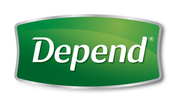Menopause & Incontinence
Although menopause can be a cause of incontinence, it’s not a guaranteed side-effect, and certainly not an inevitable sign of ageing.
Oestrogen levels naturally decline during and after menopause. Vaginal tissue, including that of the bladder and urethra, requires oestrogen for strength and elasticity. The reduction in oestrogen following menopause can cause tissues to weaken, providing less support.
Incontinence during menopause
There are a few types of incontinence that can develop during menopause, including:
- Stress incontinence
- Urge incontinence
- Nocturia
Stress incontinence
As oestrogen levels naturally decline during menopause, this can cause the sphincter, urethra and pelvic tissue muscles to weaken, making it tougher to hold urine. This may result in leakage when pressure is put on the bladder – for example, when coughing, sneezing, or exercising.
Urge incontinence
If vaginal tissue muscles weaken, the bladder can struggle to stretch and accommodate it filling with urine. This loss of stretch can cause irritation and lead to more frequent urges to urinate.
Nocturia/nocturnal enuresis
Nocturia is when there is a regular need to wake during the night to use the toilet.
Managing incontinence caused by menopause
Incontinence is often treatable, and always manageable. If you are experiencing symptoms of incontinence, it’s always best to visit your doctor to find out more about the condition.
Talking to your doctor
Incontinence isn’t new to your doctor, so you shouldn’t feel embarrassed about discussing it with them.
Your GP will be able to work with you to diagnose the type of incontinence you have, before suggesting the best course of treatment or management.
If possible, attend the appointment prepared. Beforehand, try to keep a diary of the frequency of leaks, the amount of urine, and any potential triggers.
Talking to your family
Speaking to a loved one or close family member about your condition will stop you feeling isolated. Their support can empower you to seek help, manage your incontinence and continue with your life with confidence.
Incontinence products
Various products are available to help you manage incontinence, including pads and pants, that offer trusted, discreet protection. Depend® Comfort Protect, for example, provides odourless protection and can’t be seen through clothing. Alternatively, the Active Fit range enables you to carry on enjoying activities, worry-free.
Explore our range today to find the right product for you.

